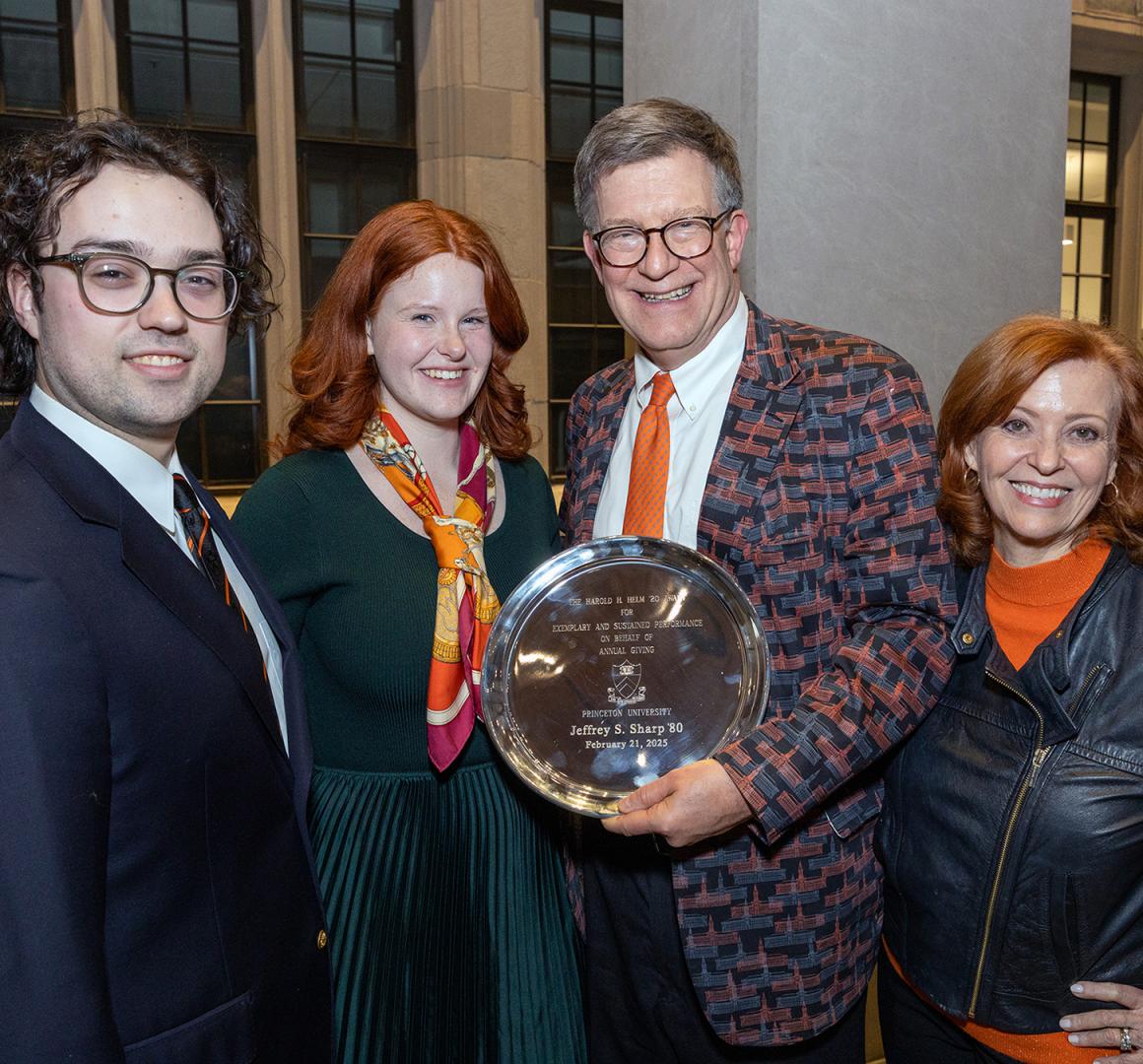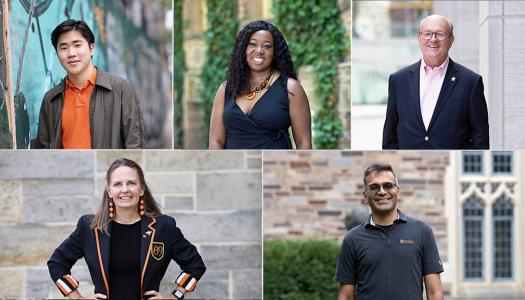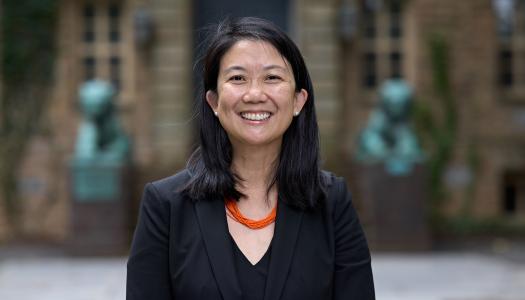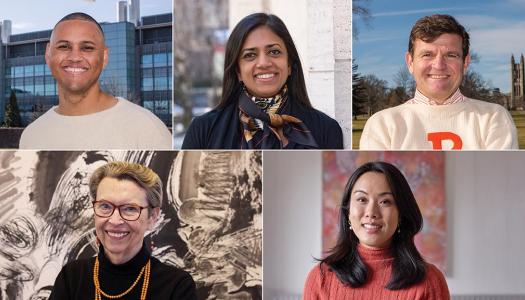Going the distance with dedicated Annual Giving volunteer Jeff Sharp ’80

Jeff Sharp ’80, holding the Helm Award, is flanked by his family, from left: future son-in-law Gabe Arcaro ’18, daughter Cat ’18 and wife Elizabeth.
When Jeff Sharp ’80 volunteered for his first Annual Giving phonathon in the spring of 1984, he never imagined he would be leading his class’s Annual Giving effort as class agent 40 years later. Back then he was simply looking to make some friends, having just moved to Chicago. “I wanted to find a way to get involved with the Princeton Club,” he said. “Because everyone was so nice there.”
Over the decades, that initial phonathon led Sharp to a long stint as an Annual Giving class agent, special gifts co-chair for Class of ’80’s major reunion Annual Giving campaigns, president of the Princeton Club of Chicago and member of the Annual Giving Committee.
In recognition of his decades of dedicated volunteer work, Sharp received the 2025 Harold H. Helm, Class of 1920 Award for “exemplary and sustained” service to Annual Giving. Named for Harold Helm ’1920, the first chair of the campaign, it is the highest distinction awarded for service to Annual Giving. “I learned about Annual Giving during our Freshman Week Orientation during which Freddy Fox ’39 and Bill Bradley ’65 talked about its importance,” Sharp said. “They said that it supported financial aid, and since I was receiving financial aid that resonated with me.”
Sharp’s Princeton journey began in Atlanta when, as a high school student cutting grass for neighbor John Wallace ’60, Sharp received some valuable advice: “He said, ‘I think you should go study engineering at Princeton, and then you should become a patent lawyer,’” Sharp said. “He was a lawyer himself and had this amazing two-and-a-half-hour lawn, so that made an impression on my teenage mind.”
That suggestion planted a seed that would continue to grow after he received his chemical engineering degree from Princeton. Sharp briefly worked for Monsanto in Texas before attending law school at the University of Georgia, where he met his wife, Elizabeth. She was from Chicago, so their connection to the area and his interest in biotechnology led them to relocate. He has practiced patent law at Marshall Gerstein for 40 years and is the firm’s managing partner.
“We represent startups, universities and companies that are now Big Pharma,” Sharp said. “The best are the little companies that become big companies.” His firm has secured patents for early recombinant DNA-produced drugs and CRISPR gene-editing technology. “I think this is the best science job there is.”
Sharp talks about his decades of service to Princeton with the same passion that characterizes his work as an attorney. “I think Princeton and institutions like it do so many important, good things for the world,” he said. “If you have a portfolio of philanthropy, you’ve got short-term interests like the food bank in town that needs your immediate support. But a place like Princeton does things that are going to help humanity in the long-term in so many ways.”
This approach to philanthropy as a diversified portfolio — balancing immediate community needs with enduring institutional impact — extends to his volunteer work. With his class’s 50th reunion in five years, his dedicated presence will be needed more than ever. And along with volunteering for Annual Giving, he serves as mentor with the Leadership Council on Legal Diversity and contributes to the Latin School of Chicago and the Chicago Committee on Minorities in Large Law Firms.
Sharp also plans to travel more in the coming years. “My wife wants me to learn French because she’s fluent,” he said. “And our daughter is getting married, so there’s plenty to keep me busy.”
Sharp’s children are both Princeton graduates who have been active in University life. His son, Dillon ’14, participated in Undergraduate Student Government, while his daughter, Cat ’18, was selected as a Class Day speaker.
Sharp says he’s personally grateful for all the opportunities Princeton has given him, and he also sees the bigger picture. “Maybe it’s because of my profession, but I see now how much important scientific research the University does while advancing the arts and humanities,” he said. “Princeton is a special place, and I not only appreciate all it does for me and my family, but also what it does for the world.”


